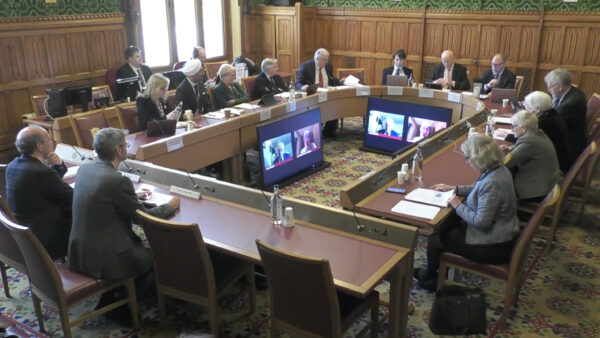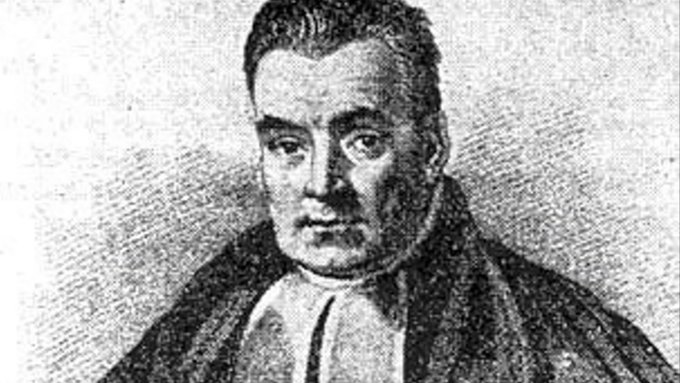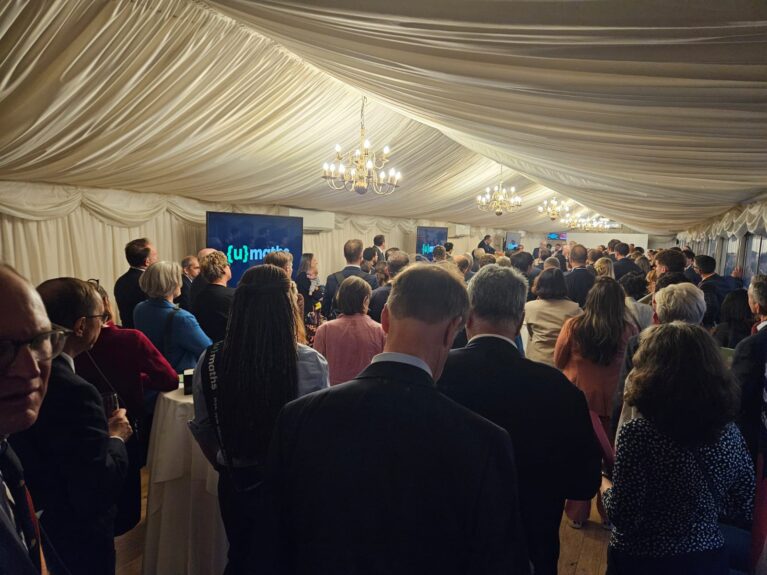AcadMathSci gives evidence in a House of Lords Science and Technology Committee session, April 2025
The Academy’s Education Workstream lead, Lynne McClure OBE, gave oral evidence to the House of Lords Science and Technology Committee in their non-inquiry session focussing on maths education on 4 March 2025.
In the first hour of the meeting, three witnesses—AcadMathSci’s Lynne McClure OBE, Charlie Stripp MBE, CEO of Mathematics in Education and Industry, and Conrad Wolfram, CEO of Wolfram Research Europe Ltd—were asked to respond to questions on the state of maths education in the UK, associated priorities, and government policies. The questions touched on topics including teacher recruitment and retention, attainment gaps, and a curriculum fit for the future. On the consistent lack of maths specialist teachers, Lynne highlighted the higher percentage of maths graduates from lower-tariff universities going into teaching than from higher-tariff ones, and the impact of cuts at mostly lower-tariff universities. She also shared her thoughts on the challenges in teaching maths, the gender divide, and possible measures to improve maths education.
The Committee showed strong interest in the Academy and Lynne was asked to discuss the government’s withdrawal of funding for establishing a national academy focussed on the mathematical sciences. She commented that the Academy remained dedicated to its mission and had already delivered outstanding work, citing the report quantifying the economic contribution of the mathematical sciences to the UK and our involvement in the Maths Summit as two examples. She noted that the Academy has already succeeded in bringing together the whole mathematical sciences community—in education, academia, business, industry, government—and highlighted the Academy’s engagement across all four nations.
Lynne’s follow up note gives more detail on some of the key themes raised during the hearing on the topic of maths education. In summary:
Mathematical science is crucial for unlocking human potential: it fosters critical thinking, problem-solving, and innovation, forming the foundation for advancements in technology, science, and beyond. In order to boost the economy and enhance quality of life for individuals and across society, it is imperative that we take steps to improve population numeracy and to support high end mathematical science research. We must ensure that recent decisions that counter these aims are challenged and overturned.
- The Advanced Mathematics Support Programme (AMSP). The Government should reinstate its funding of AMSP in order to uphold equity in access to the most competitive university mathematics courses.
- Maths Schools. The Government should commit to on-going core funding for Maths Schools and should “un-pause” its decisions on opening new schools for Durham and Nottingham. To do otherwise risks damaging efforts to ensuring more equitable access to mathematical science study at the highest levels in two of the UK’s most under-performing regions.
- The maths teacher pipeline. The teacher pipeline remains an area of major concern. In order to avoid disproportionately affecting disadvantaged schools which historically have difficulty in recruiting teachers, the Government should work with key players in the field including the Academy for the Mathematical Sciences and the Nottingham Observatory for Mathematical Education to explore new and bold evidence-based strategies for recruiting and retaining mathematics teachers.
- Maths department closures – and the link to teacher training. The decrease in the number of maths graduates from lower tariff universities has an outsized effect on the pool of would-be maths teachers. The Government should work with the Academy for the Mathematical Sciences, the Campaign for the Mathematical Sciences, and Universities to design and support programmes to increase numbers applying to study the mathematical sciences right across the university sector.
- Funding for the Academy for the Mathematical Sciences. The cancellation of £6m funding for a National Academy focussed on Mathematical Sciences threatens the cohesive vision across the community built up over several years, and puts at risk the potential of the mathematical sciences to support the government in delivering on its missions including through its AI Action Plan. The Academy for the Mathematical Sciences should be given baseline funding alongside its peer National Academies.
- GCSE maths resits, and the Curriculum and Assessment Review. The current mathematics GCSE is not fit for purpose and the requirement to resit is inappropriate and soul destroying for the majority of the 40% of students who fail to achieve a Grade 4 pass on first attempt. The government should accept the recommendations presented to the Curriculum and Assessment Review to introduce a criterion referenced KS3 ‘Maths Essentials’ qualification, as a precursor to GCSE.
Lynne’s follow up note can be read in full here. Further, you can watch the full Committee session here.
Share Article







